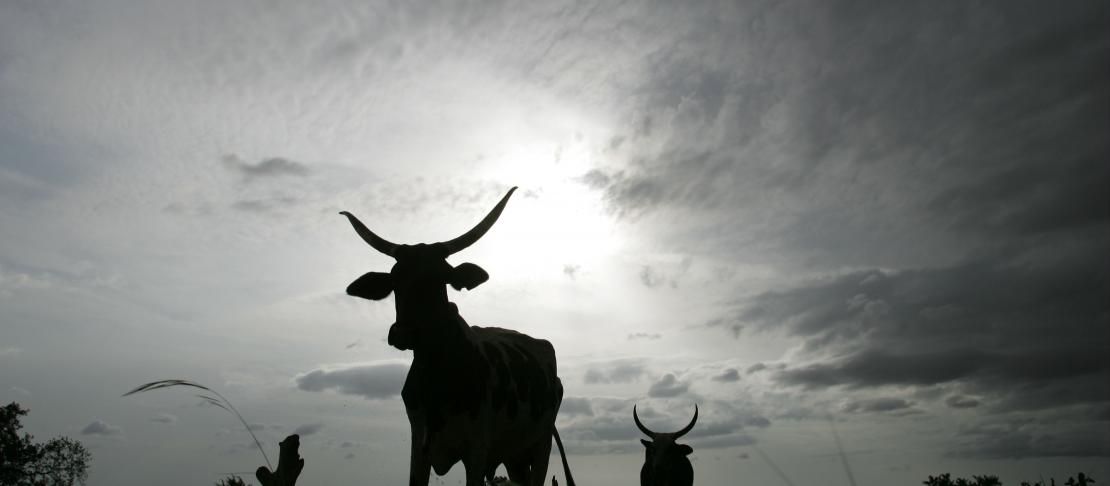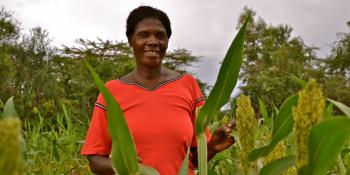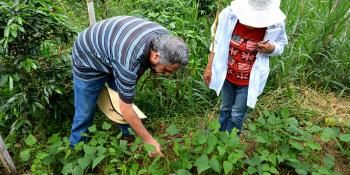Increasing farmers' food security with improved manure management practices in Nyando

Research assesses manure management practices and current nutrient losses that occur on-farm.
Millions of smallholder farmers around the world keep livestock and grow crops on their farms to improve their livelihoods and for food security. An essential aspect for smallholder crop-livestock farmers in sub-Saharan Africa is productive soils that is necessary to maintain productivity. Manure is an important source of nutrients for soils; it can sustain crop productivity as it is an important by-product to serve as fertilizer for smallholder farmers.
Flavia A.M. Casu, a student at Wageningen University (WUR) has recently carried out research in Kenya on how the improvement of manure management practices could reduce nutrient losses and increase overall manure quality. The study took place in Nyando Climate-Smart Villages (CSVs) in Kenya, under the CGIAR Research Program on Climate Change, Agriculture and Food Security (CCAFS).
The use of manure as fertiliser is seen as a promising and economically viable way to improve soil fertility and crop production and through this, develop a farming system that is more resilient against the effects of climate change. In order to effectively use manure as fertiliser, different management options exist to decrease the risk of nutrient losses and consequently increase the quality of the end product.
Data collection took place during a three-month period of both field and laboratory work. Farmers were interviewed through a questionnaire on household and farm characteristics, market orientation, livestock composition and manure management perceptions and practices. Besides the survey, manure samples from large (cattle), small ruminants (sheep and goats) were taken from each farm. For both stored and fresh manure, 300 grams were stored in plastic zip lock bags and transported in cooling boxes to the International Livestock Research Institute (ILRI) laboratories for further analysis.
Manure management practices in Nyando
Between resource endowment categories, differences in management, decision-making and perspectives on manure management were present. However, all farmers included a basic form of manure management and confirmed the importance of collecting manure from their livestock and incoporating it on-farm. Manure was thus seen as an important livestock waste and it was believed that manure was beneficial for crop production on the landscape.
The laboratory results showed a difference in nutrient content between fresh and stored manure. The carbon content was higher in fresh manure, which can be explained by the storage period of manure after collection, which is on average between 6 and 12 months.
The results show that from excretion to application, large losses occur and that most farmers have far less manure (and thus nutrients) available than on average required per hectare. However, if collection and application of manure would be taken more seriously, farmers could increase nutrient levels that could nourish Current manure management practices lead to higher nutrients losses.
Improving manure management
The research suggests that improved manure management practices will help farmers reduce the crop nutrient gap. These practices include:
- covering manure with a plastic sheet;
- improving floor and roof of the storage unit;
- decreasing the storage period;
- adding organic materials to the manure heap;
- increase the frequency of manure collection, and
- improve flooring of stalls where livestock is kept overnight.
Download the study: Casu FAM. 2018. Manure management and nutrient cycling in smallholder crop-livestock systems in Nyando, Kenya. Master thesis at the Wageningen University and Research.
The study was carried out with support from the International Livestock Research Institute.



